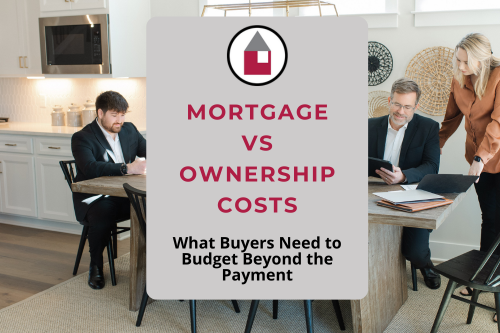 When you sell your home, every dollar you spend before listing should have one job: come back to you in the form of a higher sale price.
When you sell your home, every dollar you spend before listing should have one job: come back to you in the form of a higher sale price.
The challenge for most homeowners isn’t deciding whether to update their home. It’s figuring out where those prep dollars will work hardest. Some projects bring back two or even three times what they cost, while others barely move the needle.
The good news? You don’t need a full renovation to maximize your profit. A handful of targeted, high-ROI improvements can dramatically improve how buyers perceive your home and how strong their offers are.
Here’s what to focus on if you want the biggest return with the least stress.
The Highest-Return Projects That Boost Value Fast
First impressions matter more than most sellers realize. Curb appeal and visible upgrades often shape how buyers feel about a home before they even walk inside.
Some of the strongest ROI projects nationwide include:
-
Garage door refresh or replacement
-
Average cost: about $4,672
-
Resale value added: roughly $12,507
-
ROI: 268%
-
-
Basic lawn care and yard cleanup
-
Average cost: around $415
-
Resale value added: about $900
-
ROI: 217%
-
-
Steel entry door replacement or upgrade
-
Average cost: roughly $2,435
-
Resale value added: about $5,270
-
ROI: 216%
-
-
Manufactured stone veneer accents
-
Average cost: around $11,702
-
Resale value added: roughly $24,328
-
ROI: 208%
-
Buyers often decide within minutes whether a home feels well cared for. These projects send a clear signal that the property has been maintained and is move-in ready.
Low-Cost DIY Updates That Still Deliver Big Returns
You don’t need a massive budget to make a noticeable difference. Some of the most affordable improvements consistently bring back more than they cost.
Here are a few seller favorites:
-
Interior painting in neutral tones
-
Cost: about $2 to $6 per square foot
-
Resale value added: roughly $1,070 to $3,210
-
ROI: 107%
-
-
Hardwood floor refinishing
-
Average cost: around $3,400
-
Resale value added: about $5,000
-
ROI: 147%
-
-
Closet shelving and organization upgrades
-
Cost: about $500 to $2,500
-
Resale value added: roughly $2,000
-
ROI: 55% to 60%
-
-
Basic landscaping refresh
-
Cost: about $4,800 to $9,000
-
Resale value added: roughly $5,000 to $9,000
-
ROI: 100% to 104%
-
These projects improve how your home looks in photos, during showings, and in online listings, which is especially important in today’s digital-first home search.
Mid-Range Improvements That Still Pay Off
For homeowners with a little more time or budget before listing, these upgrades tend to deliver solid value while making homes more attractive to buyers.
Some strong performers include:
-
New wood deck
-
Average cost: about $18,263
-
Resale value added: roughly $17,323
-
ROI: 95%
-
-
Concrete paver patio
-
Average cost: around $10,500
-
Resale value added: about $10,000
-
ROI: 95%
-
-
Fiber-cement siding replacement
-
Average cost: roughly $21,485
-
Resale value added: about $24,420
-
ROI: 114%
-
-
Smart-home upgrades
-
Average cost: around $3,026
-
Resale value added: roughly $2,633
-
ROI: 87%
-
Outdoor living spaces and efficiency-focused features continue to attract buyers, especially as people think more about comfort and long-term costs.
How to Prioritize Home Prep in Huntsville
Every home and budget is different, but a smart strategy usually follows a few simple principles.
Before spending on upgrades, homeowners should:
-
Start with projects buyers notice in the first few minutes of a showing
-
Focus on improvements with 100%+ ROI whenever possible
-
Match upgrades to the price range and expectations in Huntsville
-
Avoid over-customized renovations that don’t translate to higher offers
Finally, be sure to consult with your real estate agent. Many times, sellers think their home needs multiple upgrades when in reality, it just needs some deep cleaning or staging.
The goal, here, is to focus on the updates that actually move your home’s value in the right direction. Strategic, ROI-backed improvements consistently lead to stronger offers and faster sales, not to mention less stress during negotiations.
Source: ACE Handyman Services

 If you’re looking to buy a home in 2026, and you’ve been waiting for the housing market to feel a little less stacked against you, that moment may finally be here.
If you’re looking to buy a home in 2026, and you’ve been waiting for the housing market to feel a little less stacked against you, that moment may finally be here. Most buyers spend months preparing to get approved for a mortgage. They obsess over rates, run payment calculators, and watch listings like a hawk.
Most buyers spend months preparing to get approved for a mortgage. They obsess over rates, run payment calculators, and watch listings like a hawk.  When it comes to purchasing a luxury home in
When it comes to purchasing a luxury home in  Buying a home isn’t easy right now. Mortgage rates are higher than most buyers want. Prices feel like they’re stuck on fast-forward. And every headline seems to tell a different story. It’s no wonder so many people in Huntsville are waiting for clearer signals before making a move.
Buying a home isn’t easy right now. Mortgage rates are higher than most buyers want. Prices feel like they’re stuck on fast-forward. And every headline seems to tell a different story. It’s no wonder so many people in Huntsville are waiting for clearer signals before making a move.